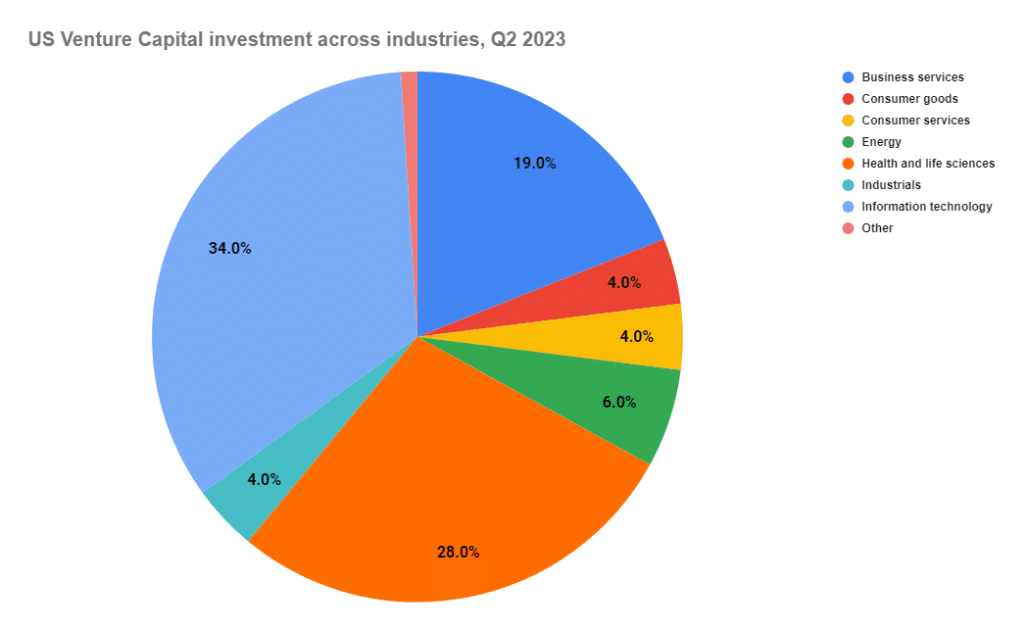As the calendar turns to 2024, the technology industry stands at a critical juncture, experiencing a profound transformation in its employment paradigm. In this comprehensive article, we aim to delve deep into the emerging tech job trends that are reshaping the sector.
Emerging Patterns in Tech Job Trends
The tech job market will undergo a significant transformation in 2024. Various factors, including the economic impact of the global pandemic and the evolution of venture capital funding methodologies, propel this change. These factors have led to new trends in tech jobs that are crucial for anyone involved in the industry to understand. It is no longer just a topic of interest but a fundamental necessity for tech professionals to grasp these trends.
The changes are happening at an incredible speed; trends initially projected to unfold over 15 years are now occurring rapidly. This fast-paced evolution is creating a landscape requiring prompt and strategic understanding and adaptation from experienced professionals and newcomers. Understanding these emerging patterns is essential for staying relevant and competitive in the constantly changing world of technology.
Understanding the ‘Bullwhip Effect’ in Tech Employment
By 2024, the tech job market will experience a significant phenomenon called the ‘bullwhip effect.’ This term, taken from supply chain management, describes the current state of the tech job market. It highlights the growing gap between the increasing number of skilled tech professionals in the market and their limited job opportunities. This scenario is causing a mismatch between the supply and demand of tech talent.
Number of IT lay-offs in 2023, by month:

Understanding the concept of the ‘bullwhip effect’ concept is crucial as it explains the difficulties the tech industry faces in integrating fresh graduates and seasoned professionals into its workforce. This situation increases job seekers’ competition, making the job market more challenging and demanding.
The impact of this trend has several aspects. On the one hand, it provides companies with many talented individuals. On the other hand, for those looking for job opportunities or career growth in the tech industry, this trend highlights the importance of having exceptional skills and versatility and actively pursuing professional development.
The ‘bullwhip effect’ highlights the need for tech professionals to continually refine their skills and for companies to develop effective talent strategies to thrive in a competitive job market.
Venture Capital’s Evolving Role in Shaping Tech Job Trends
Venture capital has been a crucial factor in driving growth and innovation in the tech industry. However, in 2024, the role and impact of venture capital are changing due to broader economic factors such as increasing interest rates and inflation. This has resulted in a trend towards more strategic and cautious investment approaches, impacting tech companies’ job availability and growth strategies.

Tech startups and growth-stage firms are finding it harder to secure venture capital funding in today’s unpredictable environment. Investors are more selective, demanding proof of sustainability, profitability, and long-term viability. This has made the job market more competitive, with companies having to recalibrate their strategies and optimize resources.
Tech professionals must have adaptable skills and contribute to a company’s sustainable growth for success in the industry. Understanding changes in venture capital is essential for career navigation in this evolving landscape.
Decoding Company Valuation in Today’s Tech Market
Valuing software and tech companies requires a sophisticated understanding of industry nuances and trends in tech employment. The resulting valuation is a critical barometer of the tech industry’s health.
Valuing a tech company involves market dynamics, economic conditions, technological advancements, competitive landscape, and investor sentiment. These factors play a significant role in determining a company’s perceived value. For instance, market dynamics and economic conditions can impact a company’s valuation.
Moreover, the valuation process has become more complex due to the rapid pace of technological innovation and increasing competitiveness in the tech sector. Companies that lead in cutting-edge technologies or possess unique intellectual property may have higher valuations. At the same time, investor confidence and expectations, often influenced by broader market sentiment and the future growth prospects of the technology sector, are crucial in determining a company’s market value.
Understanding these intricacies of company valuation is crucial for professionals in the tech industry. It provides valuable insights into the health and direction of tech companies, affecting employment trends. As companies adjust their strategies to align with market valuations and investor expectations, this often translates into shifts in hiring practices, investment in talent development, and even restructuring teams and departments.
Professionals seeking career opportunities or advancement in the tech industry can have a strategic advantage by understanding valuation processes. This knowledge can help them identify stable and growing companies that offer sustainable employment. Entrepreneurs can also benefit from it by making informed decisions about their business strategies and investments.
Understanding company valuation is essential for navigating tech job trends. It requires financial and market awareness. As the tech industry evolves, this skill becomes increasingly critical to success. In conclusion, decoding company valuation is crucial for thriving in tech.
Addressing the Broader Economic Challenges in the Tech Industry
The technology industry is often seen as a rapidly evolving and forward-looking field and is not immune to the global economic challenges that shape markets. Supply chain disruptions have increased in recent years, and ongoing inflation concerns have a significant and tangible impact on the tech sector. These issues influence everything from production timelines and costs to the overall financial health of technology companies.
As a result, these economic factors play a critical role in determining the trends in tech jobs, affecting the strategic choices and course of action for companies in the industry. This directly impacts employment opportunities and job security in the technology sector.
Adaptive Strategies for Tech Professionals in a Shifting Market
To stay competitive in the tech job market projected for 2024, professionals should specialize in emerging technologies or develop niche skills in high demand. Continuous learning and staying updated with industry trends is essential. The technology sector is known for its rapid innovation and change, so regularly updating skills and preparing to pivot is crucial.
As we move forward into 2024, the job market in the tech industry is experiencing rapid changes and facing new challenges. For professionals and companies in this sector, it is crucial to understand and adapt to these trends to succeed. Therefore, it is essential to remain informed and flexible, continuously upskill, and stay aware of the broader economic landscape. These are vital strategies to navigate the complexities of tech employment in this exciting and dynamic era. The future of tech employment may seem uncertain and challenging, but it is also full of opportunities for those prepared to embrace change and innovation.
Your success story begins with our tailored solutions!
Our team specializes in crafting tailored solutions to meet your unique challenges and goals, providing you with the expertise you need to succeed.